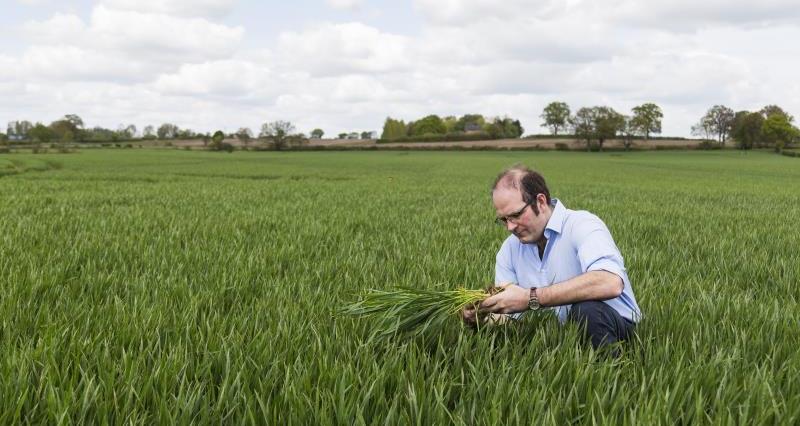As farmers we are continuously being sold; “Buy this it will increase your yield by X and if you apply the second product the results are additive so you end up with 2X.” When I add up all the marginal gains I have read about in the various comics, sales brochures and technical magazines that have come through the post over the past 10 years its impossible to fathom why I’m not breaking the world record wheat yield every year! I assess the season just past and then all the sales pitches start, and once again I strive to break the yield record.
I believe that smart systems-based research in agriculture is actually very challenging. The reality is that when two different products are being compared in a trial it is relatively simple to look at the impact of those treatments on that particular variety at that moment in time. What is far more difficult is the type of research that is really going to make a step change in agricultural productivity because on farm we have so many different variables that change from field to field and season to season. To try and make sense of the interactions between all these different decisions is incredibly challenging but looking at all the decisions in isolation doesn’t end up giving the correct answer.
Two examples of pieces of research that are very complex would be the whole integrated farm management piece and the strategy involved for farms that are looking at moving towards less cultivation. I hear a scientist say that “under this system you can use 30% less nitrogen” and while the academic studies probably prove this to be true there are so many factors that influence this decision on farm. When is the correct time to apply this nitrogen? How many applications of nitrogen should I be using? Is my soil in the correct condition to maximise efficiency of uptake? Will the clover companion crop you advocate negatively impact my wheat yield through competition? Can I control the blackgrass without killing it?
Over the coming decade, as we look at the challenges we are facing with pressure to reduce our use of plant protection products and make sure that we minimise the contribution of agriculture to climate change, this systems-based research is going to be ever more important. We will need our scientists, technology companies and plant breeding centres to start thinking about their contribution to the big picture rather than the individual questions. This research is going to require multi-annual funding because of its complexity. It is going to need collaboration from many, if not all, of our research organisations so they can work towards a common goal, rather than in individual silos. And, most importantly, the results of this work need to be judged on the impact on farm productivity rather than just securing the next round of research funding.
